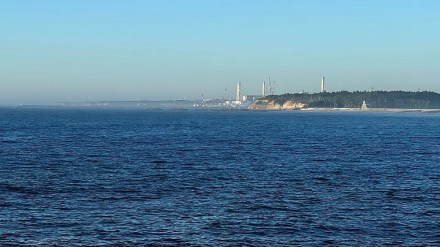Dr Daya Shankar
Imagine you’ve just finished brewing your morning tea. You’ve relished your cuppa, and now you’re left with some lukewarm water. You think, “It’s just water, right? I’ll pour it down the sink.” But what if that water had a tiny ingredient that could potentially harm your plants or even the birds that visit your balcony?
This analogy helps us understand Japan’s recent decision to release treated wastewater from the Fukushima Daiichi nuclear power plant into the Pacific Ocean. While experts say most harmful elements have been removed, there’s still a bit of a radioactive substance called tritium left. And just like our tea analogy, while it might seem like a small amount, the potential impact on marine life, the environment, and even our food chain has raised eyebrows worldwide.
A quick dive into history
Back in 2011, Mother Nature unleashed her fury on Japan with a massive earthquake and tsunami. This natural disaster led to a meltdown of several reactors at the Fukushima Daiichi nuclear power plant. To prevent further catastrophe, workers flooded the reactors with water. This water, however, became highly radioactive. Fast forward to today, and this water is still being stored in massive tanks, with the quantity now reaching a whopping 350 million gallons!
Filtration challenge
Japan, known for its technological prowess, developed an intricate system to filter out most radioactive contaminants from the water. This system, known as the Advanced Liquid Processing System (ALPS), is quite a marvel. But there’s a catch. One radioactive element, tritium, refuses to be filtered out. Why? Because Triitium is an isotope of hydrogen, which is a component of water itself (H2O). It’s like trying to remove the tea flavour from your brewed cup – nearly impossible!
The release and global concerns
With storage space running out, Japan believes that releasing some of this water into the Pacific Ocean is the only solution. But it’s not as simple as opening a tap. The plan is to dilute the tritium-laden water with seawater and then release it slowly over decades.
The Japanese government, backed by international agencies, believes this is safe. However, many countries, including neighbours like China and South Korea, have expressed concerns. There’s also a worry about the wastewater’s potential to travel vast distances. Imagine a message in a bottle thrown into the sea in Japan being found on a beach in California!
India’s perspective: More than just waves
Now, you might wonder, “Why should India be concerned about something happening miles away in Japan?” The answer lies in our deep connection with the ocean. India, with its vast coastline, is a significant fishing nation. Any harm to marine life in the Pacific Ocean could hit our fishing industry hard. Imagine our fishermen coming back with fewer catches or, worse, contaminated fish. This not only affects their livelihood but also raises questions about the seafood on our plates.
Moreover, if this wastewater enters the food chain, it could pose health risks to us, the Indian citizens. And let’s not forget the reputation. India prides itself on its seafood, especially in coastal regions like Kerala, Goa, and West Bengal. The wastewater issue could tarnish India’s image as a safe seafood destination.
Conclusion
The ocean isn’t just Japan’s backyard; it’s a shared resource that many countries, including India, depend on. While Japan assures that the water is safe, the global apprehension is a reminder that in our interconnected world, one nation’s decision can create ripples (pun intended) across the globe. As the situation unfolds, countries like India will be watching closely, hoping for a solution that ensures the safety of both the ocean and its myriad inhabitants.
So, the next time you enjoy a plate of prawns or sip on your morning tea, remember that our world is interconnected in ways we might not always see. And decisions made in one corner of the world can have implications in another. Let’s hope for a future where our oceans remain as pristine as they were meant to be!
The author is a nuclear field expert with extensive academic and research experience. Currently as an Associate Professor at Woxsen University, he also holds the Dean-School of Sciences.
Disclaimer: Views expressed are personal and do not reflect the official position or policy of Financial Express Online. Reproducing this content without permission is prohibited.
